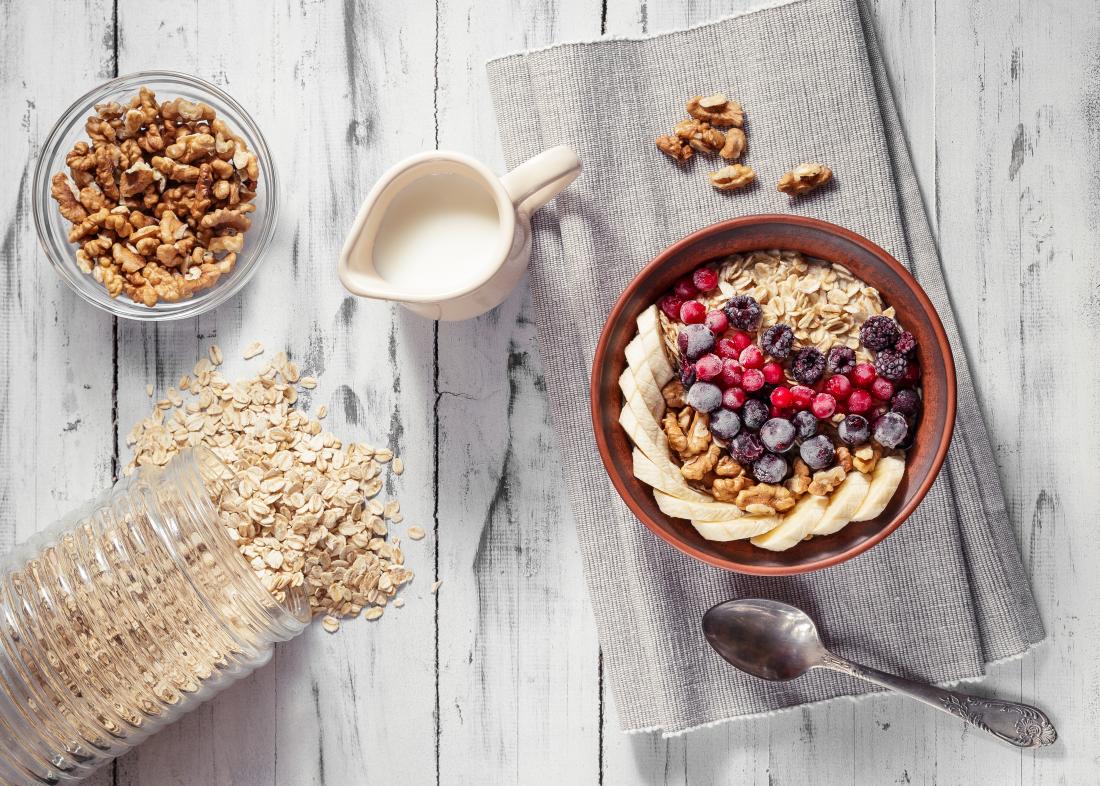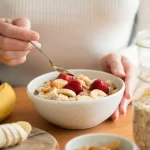
Quick Tips
- Yogurt: Look for the phrase “live and active cultures” on the label. Even if you have lactose intolerance, there’s a good chance you can handle yogurt, since the bacteria also ferments and breaks down the lactose.
- Kefir: It’s a thick, tangy, fermented milk drink (pronounced kuh-FEAR) that’s been around for thousands of years. Look for it in the dairy aisle in plain and flavored varieties, and drink it straight or in smoothies.
- Miso: This thick paste made from soybeans and grain has a savory “umami” flavor. Stir it into salad dressings, marinades, and soup stock.
- Tempeh: Like tofu, this is made from soybeans, but it’s also fermented. It’s firmer and chewier than tofu and a great source of protein. Cut it into slices to bake or stir-fry.
- Sauerkraut: It naturally contains healthy bacteria. Check labels for simple products that contain only cabbage and salt.
Prebiotic foods: These plant foods actually work like “food” for probiotics, helping those good bacteria to grow and flourish in your gut. Foods that naturally contain prebiotics include:
- Onions: Whether you eat them raw or cooked, they help feed healthy gut bacteria.
- Bananas: Very ripe bananas are sweeter, but less ripe bananas will have more prebiotic power.
- Sweet potatoes: They work as a prebiotic and are a great source of fiber.
- Apples: They contain pectin, a starch that acts as a prebiotic. (Bonus: They’re one of the most filling fruits, so they’re good at satisfying hunger.)
- Chicory root: You can spot this ingredient on food labels. It’s often added to foods marketed as healthy or low-carb to add fiber. (Note: Some people can be sensitive to chicory root – learn more here.)
- Beans: They’re a high-protein swap for meat and deliver loads of fiber.
- Raspberries: All berries are good sources of fiber, but raspberries are one of the highest-fiber fruits around. Buy frozen if fresh are hard to find.
- Seeds like flaxseed and chia seeds: Add these fiber-rich seeds to oatmeal and smoothies. (Just be sure to choose ground flaxseed to get the benefits.)
- Oats: No matter what kind you choose – old-fashioned, quick, or steel-cut –they’re fiber-rich and also work as a prebiotic.
- Whole grains: For more fiber, trade white rice for brown, white pasta for whole-wheat, and egg noodles for barley noodles in soup.


